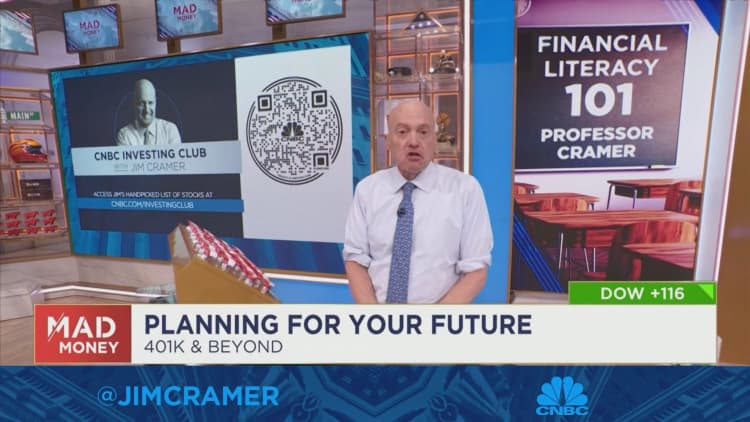
At a time when many households feel financially strained, some say you can put a price on happiness. And that number is $1.2 million.
According to Empower's Financial Happiness report, 60% of Americans said money can buy happiness and achieving a certain net worth is key to contentment.
With record high credit card debt, a declining personal savings rate and more than half of adults living paycheck to paycheck, Americans now say they would need to earn $284,167 a year to be happy, the Empower report found.
More from Personal Finance:
60% of adults live paycheck to paycheck before the holidays
The 'radically different' wage growth forecast in 2024
Cooling job market no reason for panic yet, economists say
Young adults put the price of happiness even higher
When broken down by generation, millennials put the number much higher — more than $500,000 — according to the report. Millennials and Gen Z were also more likely to say money can buy happiness.
A prolonged period of high inflation has made it harder for those just starting out. More than half, or 53%, of Gen Zers said the rising cost of living has been a barrier to their financial success, according to a separate survey from Bank of America.
In addition to soaring food and housing costs, millennials and Gen Z face other financial challenges their parents did not as young adults. Not only are their wages lower than their parents' earnings when they were in their 20s and 30s, but today's young adults are also carrying larger student loan balances.
Retirement is the biggest obstacle
Regardless of age, retirement is often the biggest obstacle when it comes to financial security.
Increasingly, even doctors, lawyers and other highly paid professionals — often already considered "rich" — who benefit from stable jobs, homeownership and even a well-padded retirement savings account, said they don't feel financially comfortable either.
While most people in the Empower report said they would need $1.2 million in the bank, other studies have found that high-net-worth individuals put the bar even higher. More than half said they would need more than $3 million, and one-third said it would take more than $5 million, according to a report by Edelman Financial Engines.
Often, "people think they need a lot more than they do — that's because they haven't zeroed into their right number," said Jason Friday, head of financial planning at Citizens Wealth Management. "It's always going to be a moving target."
Although everyone has different needs and expectations, some age-based guidelines can help, according to Mike Shamrell, vice president of thought leadership for Fidelity's Workplace Investing.
"Target date funds are one way to get a sense of your age-appropriate risk tolerance," he said. "You want to make sure you are not losing out on possible growth opportunities or, alternatively, exposing yourself to unnecessary risk."
Experts recommend working with a financial advisor to get a handle on where you stand relative to your long-term goals.
However, there are also plenty of online tools that can get you started, Friday said. "That gives people a simple entry into the planning process."


